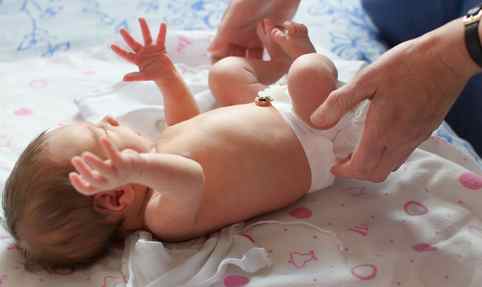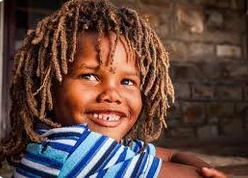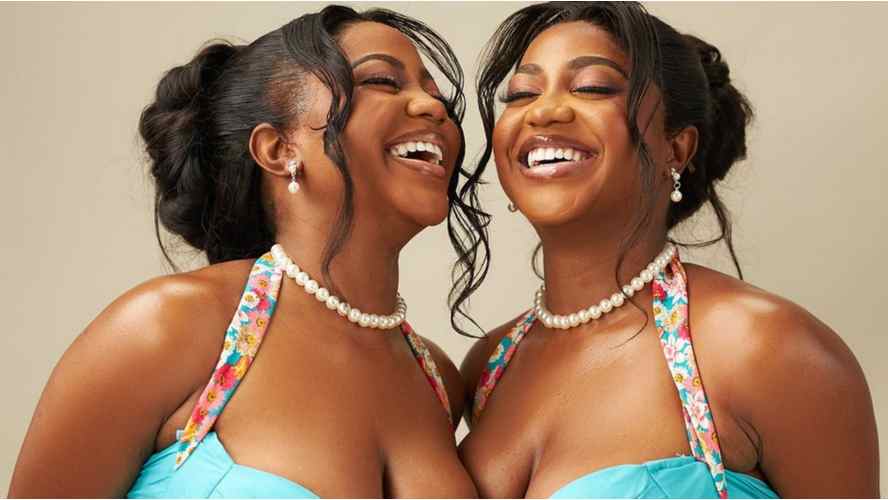
support@yorubalibrary.com
+2348073529208, 07038599574

The first cry of a newborn is a sound that signifies life, triumph, and a successful journey into the world. For some children, that journey is marked by a unique and dramatic challenge overcome even before they take their first breath. In Yoruba culture, a baby boy born with the umbilical cord wrapped around his neck, and crying continuously is recognized as Ojo. This child is named Òjó, a powerful name that speaks not of peril, but of victory, resilience, and a destiny intertwined with the divine.
The Meaning of the Name Òjó
The name Òjó is symbolic. The cord around Ojo's neck is not seen as a noose of misfortune, but as a sacred necklace, a cosmic leash. It is believed that the child, in the spiritual realm, was hesitant to leave or had a great purpose to fulfill, and the cord was a sign of being held back or marked by the divine. His successful birth, despite this, marks him as a survivor from his very first moment, a child who has already conquered a life-threatening challenge.
Common Characteristics of an Òjò Child
The narrative of survival and divine marking shapes the perceived character of an Òjó child. He is often believed to possess a distinct and resilient personality.
• Resilient and Tough:
The primary trait of an Òjò child is immense inner strength. He is seen as a natural survivor, equipped to handle life's difficulties with a toughness and perseverance that others may lack.
• Destined for Greatness:
Having overcome a significant hurdle at birth, it is believed that his life is destined for importance. He is often thought to be marked for achievement and to leave a significant impact on his family and community.
• Strong-Willed and Determined:
Just as he fought his way into the world, an Òjó boy may display a powerful will and a determined nature. He knows his own mind and can be very focused on his goals.
• Intuitive and Spiritually Aware:
The belief that his birth had spiritual undertones often extends to the child himself. He may be perceived as having an intuition or a connection to things beyond the physical realm.
Guidance for Parenting an Òjó Child
Raising an Òjó child involves nurturing his inherent strength while guiding his powerful spirit.
1. Celebrate His Strength:
From a young age, let him know the powerful story of his birth. Frame it as a story of victory and resilience. This builds a foundation of self-confidence and teaches him that he can overcome obstacles.
2. Provide Purposeful Challenges:
His resilient spirit needs outlets. Engage him in activities that require perseverance and problem-solving. Sports, mastering a musical instrument, or academic pursuits can channel his determination positively.
3. Teach Grace and Patience:
His strong will must be balanced with empathy and patience. Teach him that true strength includes compassion, kindness, and the ability to listen to others.
4. Honor His Individuality:
Recognize that he may march to the beat of his own drum. Encourage his unique interests and perspectives, reinforcing that his different path is a source of strength, not a drawback.
The Òjò Child as a Victor, Not a Victim
It is vital to understand that in Yoruba tradition, an Òjó child is not viewed as a victim of a traumatic birth. He is celebrated as a victor. The umbilical cord is reinterpreted from a symbol of danger into a badge of honor—a divine mark that sets him apart and signifies his chosen path. He is the child who arrived with a story of triumph already written.
Oriki for Òjò
Checkout the most authentic eulogies of Ojo
Òjó Ojúróngbé Olúkùlóyè
Òjó, suku là á fínná,
Ẹlẹ́wìrí ìjàkadì
Òjó, a bádìẹ sàba lórí ẹyin
Mo mọ Òjó tàìm’Òjó
Mo mọ Òjó méje
Mo m’Òjó a jókòó tolówùú má ran án,
Ó fẹ̀sọ̀ ẹ̀sọ̀ mọ́wọ́ rebi ìdí ẹ̀
Ìgbà tí olówùú ò jà, tólówùú kò bínú,
Kílọkọ rẹ̀ ó fìjà ṣe?
Mo m’Òjó, a bádìẹ sàba:
Adìẹ pamọ, Òjó kò pa
Aṣọ Òjó pọ́n kuju bí aṣọ àparò
Ojúróngbé Àdìó, ojú kan ẹ̀pà
Àdìó ojú kan erèé,
Bí a bá kú ọmọ ẹni níí jogún ẹni.
Ojúrongbé, Ojólúbùse
Erelú ọmọ,
Ni’jọ ẹ̀gbẹ́ kọ ẹni à sun’lẹ̀,
Ni’jọ́ ara ba kọ aṣọ là á sun ‘hòhò,
Ni’jọ́ orí ba kọ́lé là á sun ẹ̀gi,
Òjó a ro igbó ro ọdàn bi ẹni à nsìn,
Òjó alájo yìnbọn,
A pa ẹyá lọ l’ẹriwò ọpẹ.
A gbé ọwọ ọta rà bi awòdi,
N’ibi kúrè la mọ Òjó mọ,
Bí ó bá di pé, Ojuróngbe,
Òjó á gbé nkan ni,
Òjó Òjó Òjó, Òjó ti mo mọ̀ p’ógún,
Òjó Òjó Òjó, Òjó ti mo mọ̀ p’Ọ́gbọ̀n,
Mo mọ Ojo abá’dìẹ sàba l’órí ẹyin,
Adìẹ pọ́n kuku, Ojo pọn kẹ̀kẹ̀,
Adìẹ pa’mọ tán, Ojó kò pa.
Mo mọ Òjó ajóko ti olowú má ran!
Ó fi esọ̀-sò, m’ọwọ lọ’bi ìdí ẹ̀.
Igbat’olowu ò jà, t’olowú kò binu,
Ojurongbe, Kini o rè é de’bệ ṣe?
Ọ̀tọ̀ ni Òjó oní’ka n’íkùn,
To fi ẹsọ̀ sọ̀ tẹ́ elégbo l’ẹsẹ.
Pa Ọsìn n’ijọ wọn ns’ògún,
Ojúrongbe ló pa Egbin ni’jọ wọn nse Ọya.
Dúróbọ̀’gún ló gba ori ẹiyẹ na lọ́wọ́ rọ,
Ọtọ̀ ni Òjó a dé abà má simi,
Ọ̀tọ̀ ni a dénu oko se àárẹ̀,
Ọ̀tọ̀ ni eyiti a fún l’adiẹ sín ti npa’su s’iná,
Ọ̀tọ̀ ni eyiti a sè ni eèbu ti nrè é rà’kòkò!
Òjó kò sí n’ile, ọmọ-adię dagbà sọ̀ ọ̀,
B’ojurongbe ba wà n’ilé ńkọ́?
Ṣe ìbá ti pa yeye’dìẹ jẹ!
Gba temi, gba temi, Òjó
Ẹni Òjó bá gb’ọṣẹ lọ́wọ́ rẹ
Olúwa rẹ ṣe oríire
Òjó ń wẹ̀ lódò gbogbo ọmọgé ń yọwọ́ ọṣẹ
Òjó alágada ogun, kèǹgè tièlè
Ajagun bí akúra
Ojúrongbe, Ojolubuṣe, Ẹrelú ọmọ
Conclusion:
An Òjó child enters the world with a narrative of resilience. His name is an evidence to a battle already won, a sign of a spirit too strong to be held back.
Need more? Browse through our Oriki Gallery today, at zero cost.

Your baby was born with locked hair? Learn about t…

Curious about Yoruba twin names often called Ibeji…